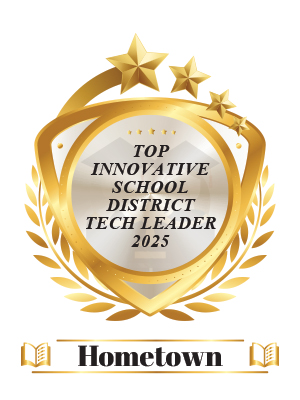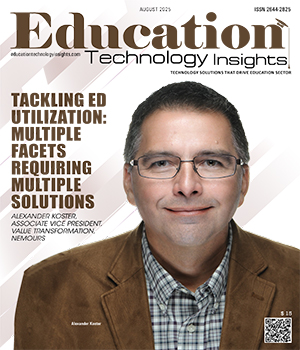THANK YOU FOR SUBSCRIBING
Be first to read the latest tech news, Industry Leader's Insights, and CIO interviews of medium and large enterprises exclusively from Education Technology Insights
If you are in a technology leadership role supporting any value-based care or population health efforts, you are likely aware of the specific needs and challenges of those programs. Achieving success in alternative payment models and population health initiatives requires advanced analytics integrated with emerging and new data sources, tailored EHR functionalities focused on specific populations (or new/supplemental systems), and innovative approaches for engaging patient populations through diverse communication channels. As with most analytic related efforts, it is critical to understand what problem the health system is trying to solve ED Utilization, and more specifically avoidable ED utilization is a critical area of focus in value-based care programs. Effective programs to manage and address ED Utilization require a variety of different analytics approaches, governance and project structures, and technical solutions tailored around each intervention. Remember to design
Top Innovative School District Tech Leader 2025
There’s something special about the energy of a school community. The roar of the crowd on game day, the excitement of a sold-out school play, the spirit of a successful fundraiser. These in-person moments create lasting memories and foster deep connections among students, families, and community members. They’re not just extracurricular, they’re essential to a thriving school culture. But behind every event is a team of educators navigating rising costs, limited staff, and everincreasing expectations. With shrinking budgets and growing demands, schools need more than dedication, they need a reliable solution that delivers real results with ease. That’s where Hometown comes in. Hometown has partnered with more than 17,000 schools and organizations across the country to provide technology that helps educators do more—with less friction, lower costs, and reduced complexity. Their mission is simple: to provide tools that empower schools to create memorable in-person experiences and lasting impact in their hometowns. Hometown recognizes what happens after the final bell rings is just as important as what happens in the classroom when it comes to shaping students’ futures. That’s why it’s built specifically for schools with a flexible platform that supports the full range of student activities: athletics, theatre, fundraisers, graduations, and everything in between. From teachers and coaches to athletic directors and administrators, Hometown supports the people behind the scenes who make these moments happen. A Platform Purpose-Built for Schools In 2024, Hometown expanded its platform through a merger with Schoolfundr, creating Hometown—a unified solution for ticketing and event management, school websites, and fee-free fundraising. Schools can select the solutions they need today—whether it’s ticketing, fundraising, or a mobile-friendly website—and easily add more as their needs grow. It’s a flexible system that simplifies operations while aligning with what schools are ready to implement.
Top Multi Tiered Systems of Support Solutions 2025
Educators across the country are working harder than ever to support students academically, behaviorally, and emotionally. However, navigating the complexity of multi-tiered system of supports (MTSS) often means juggling fragmented data, slow intervention cycles, and limited training, all within their already limited time frame. Neulight, a company rooted in advanced engineering and applied AI, is resolving this three-fold knot. It designed IntelliTier—an AI-powered MTSS platform to help schools operationalize support frameworks efficiently, consistently, and in real time. Despite its Silicon Valley pedigree and AI expertise, the team made IntelliTier for practical use in real classrooms, not abstract tech uses. “Our mission isn’t disruption—it’s collaboration,” says Andrew Lawrence, co-founder and CTO. That philosophy is reflected across IntelliTier’s feature set. Schools often struggle with data silos, behavior events tracked on paper, and interventions scattered across Google Docs, resulting in the loss of critical decision-making information. IntelliTier replaces this with a unified, FERPA-compliant repository that brings together academic, behavioral, and social-emotional data. It integrates with student information systems (SIS), pulling in grades, attendance, and other data without requiring redundant entry. “We co-create tools with educators that make MTSS more actionable, less burdensome, and more consistent, so students actually get the support they need, when they need it,” says Jose Moreno, founder and CEO. Beyond centralization, it brings consistency and clarity. Educators record behavioral events using customizable forms built around the antecedent-behavior-consequence (ABC) model, ensuring a common language across staff. Each school can configure form fields and dropdowns to reflect their workflows, while dashboards surface risk trends across district, school, grade, class, or student levels—giving educators a high-level view and granular insight. IntelliTier’s AI builds on this visibility by highlighting key patterns and recommending interventions tailored to each student, translating information into research-backed action.
Top Cloud School Software Solution 2025
Each school day brings new opportunities to support students and strengthen school communities. For small- to medium-sized schools such as charter schools, religious institutions or independent institutions, keeping things running smoothly depends on having simple, reliable tools tailored to their needs. This is where EZ School Apps makes a meaningful difference. EZ School Apps offers a unified platform with four core solutions, comprising school lunch ordering, substitute management, after-school care and school payments. These solutions are designed to reduce a school’s administrative burden without adding complexity or cost, filling critical functionality gaps in traditional student information systems (SIS). Used by over 2,000 schools, the platform has supported educators for 12 years by reducing workload and making everyday tasks easier to manage. A Platform Developed Around Real Needs As many small schools do not have the infrastructure to support a cafeteria, they often rely on external meal providers. To make this seamless, EZ School Apps enables parents to place meal orders online, make payments digitally and have meals delivered from third-party providers. Depending on the arrangement, schools can also submit the orders to providers through the software. “Most schools start by using a single solution, such as the lunch ordering app, and once they see its value they adopt additional tools,” says Matt Stockbridge, CEO. “With a single login, parents and admin can access multiple applications across schools, making the entire process efficient.”
CXO INSIGHTS

Transitioning to Remote Learning Efficiently
Neal C. Weaver, Ph.D., CETL, Deputy Superintendent of Operations, Santa Fe Public Schools

Simulating Social-Emotional Interactions to Improve Communication and Empathy
Clint Carlson, Director of Education Technology Innovations - Department of Psychiatry, University of Colorado

The Big Pivot: A Shift to the Cloud and Third-Party Vendor Risk Assessments
Fil Santiago, Director of Technology and Administrative Services, West Orange Public Schools

Tech Breaks are Essential in School
Robert Dillon, Director of Innovative Learning, School District of University City

Navigating the Ethical Implications of Technology: A Faculty Perspective on Shaping Future Leaders
J. Pablo Rodriguez, Director, Infrastructure and Cloud Services, San Diego County Office of Education
IN FOCUS
Cloud School Software As The Backbone of Next-Generation Learning Environments
The digital transformation sweeping across the education landscape has ushered in a new era of learning and administration, with cloud school software solutions at its transformative forefront.
Next-Gen Thinking in District Tech Leadership
District tech leaders play a crucial role in integrating technology into education, focusing on personalized learning, data analysis, and strategic planning to create future-ready learning environments.
EDITORIAL
Building Resilient, StudentCentered Education Systems
In this edition of Education Technology Insights, we explore how schools are reimagining success through three key lenses: Multi-Tiered Systems of Support (MTSS) solutions, visionary district-level technology leadership, and cloud-based school management platforms. Each represents a vital layer in the future of K–12 education where outcomes are driven by equity, insight, and scalability.
MTSS frameworks, once seen as compliance tools, are now evolving into dynamic engines for proactive student intervention. Modern solutions are helping educators monitor progress in real time, tailor support, and close learning gaps before they widen. These systems are being redefined to meet diverse student needs with speed and precision—while also giving administrators the insights to strengthen schoolwide performance.
At the district level, the role of the technology leader is expanding. Today’s most forward-thinking edtech leaders are not just implementing tools—they are building ecosystems. By bridging operations, curriculum, and IT, they are ensuring that every digital decision serves both pedagogy and performance. Their leadership is paving the way for more agile, responsive school systems that empower teachers and students alike.
Meanwhile, cloud-first school software is transforming how schools operate behind the scenes. From enrollment and gradebooks to budgeting and compliance, cloud platforms are improving efficiency, reducing infrastructure strain, and opening the door to real-time collaboration at every level.
Also featured in this issue are Kourtney Bostain of Henrico County Public Schools and Troy Lunt of Iron County School District, who each offer deep, experience-based insights into building stronger educational frameworks through student services, data privacy, and strategic technology management.
This issue brings together critical insights and proven practices that show how technology, when applied with purpose, can unlock more equitable, resilient, and student-centered education systems.
I agree We use cookies on this website to enhance your user experience. By clicking any link on this page you are giving your consent for us to set cookies. More info

However, if you would like to share the information in this article, you may use the link below:
www.educationtechnologyinsightseurope.com/edition/august-2025-15.html











